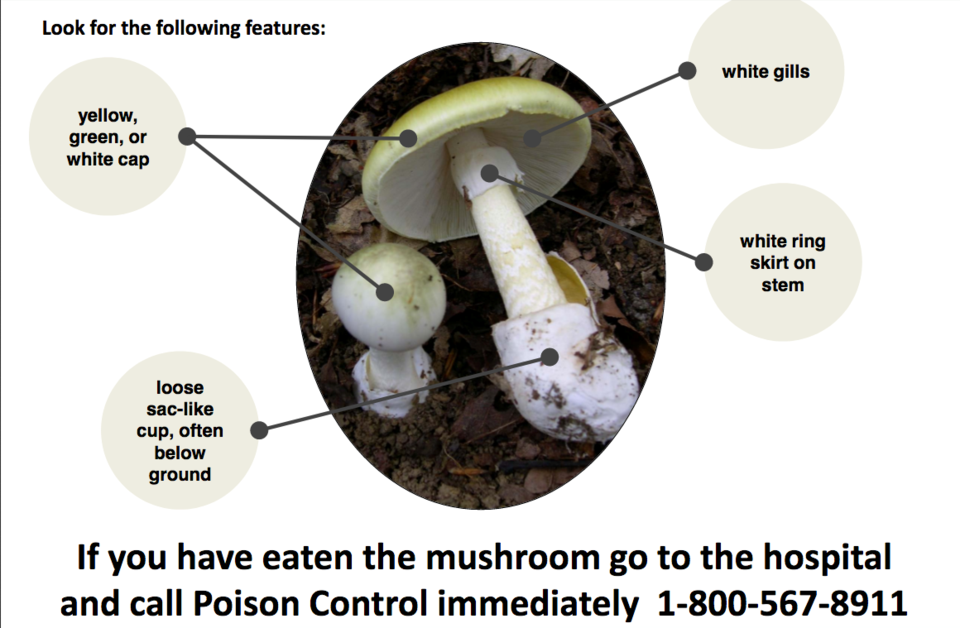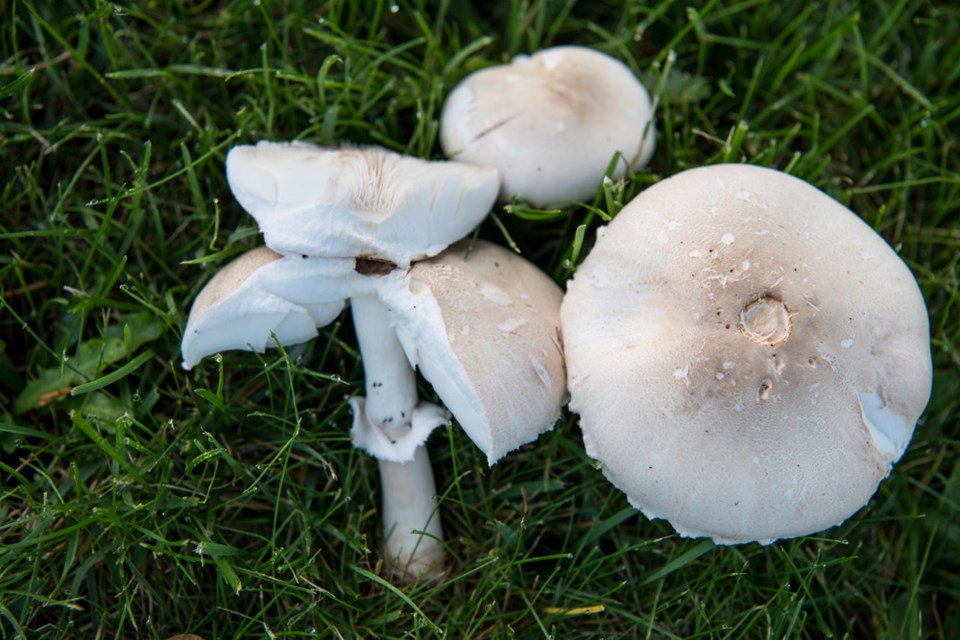It turns out the mushrooms sprouting in Squamish's Brian Aikens' yard are likely non-toxic — not poisonous.
Aikens had sent in a photo to The Chief of some mushrooms he suspected to be death caps, which the paper sent off to the BC Centre for Disease Control.
Earlier this month, the centre issued a warning for people to avoid picking urban mushrooms and to report any sightings of the deadly fungus after death caps were confirmed in more than 100 areas on the B.C. coast. The harmless-looking death cap, which has the Latin name Amanita phalloides, is the most poisonous mushroom in the world.
"Having viewed this photograph, I suspect this is not the death cap but rather is probably Leucoagaricus leucothites, which in older mushroom books was called Lepiota naucina," said Paul Kroeger, a UBC mycologist, in an email to The Chief.
Kroeger was asked by BC Centre for Disease Control to look at the photo.
"It is a very common species in lawns and often causes concern because it superficially resembles Amanita," he said of Aikens' find.
Though he would have to see more of Aikens’ mushrooms to 100 per cent confirm what they are, he added that the fact that what Aikens' found wasn't likely death caps is, "good news for Squamish, so far."
For more on the death caps go to www.bccdc.ca/about/news-stories/stories/death-cap-don%E2%80%99t-eat-urban-mushrooms.





